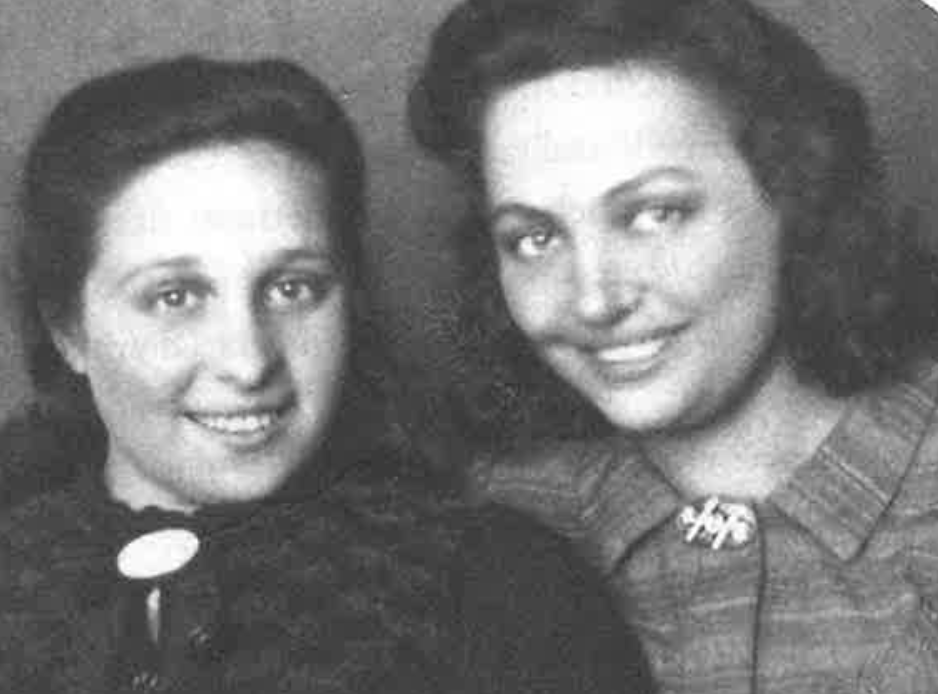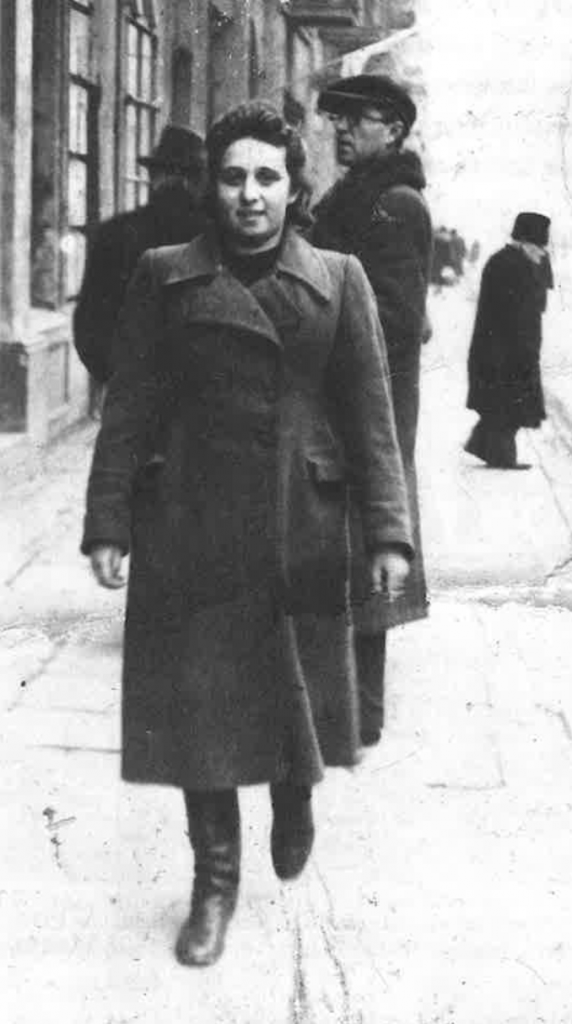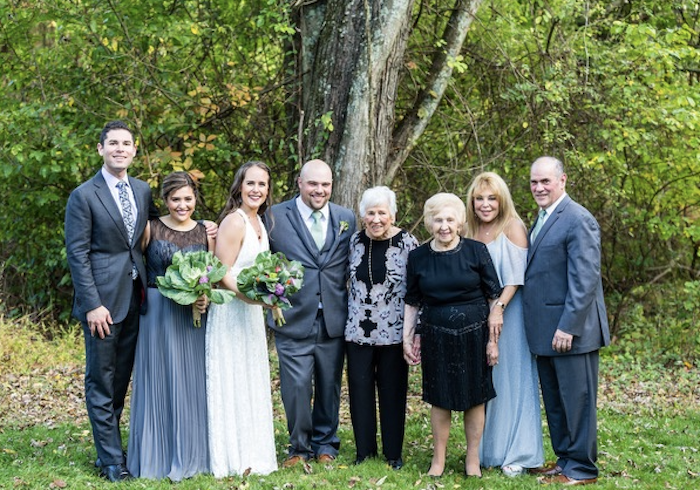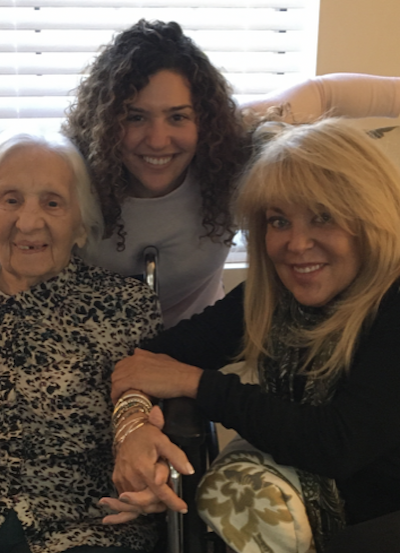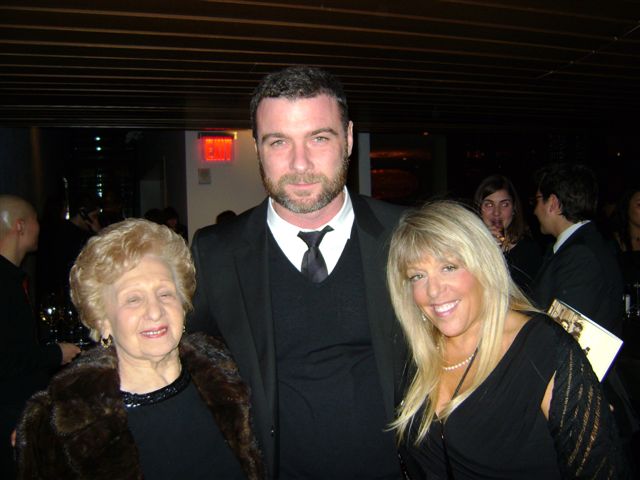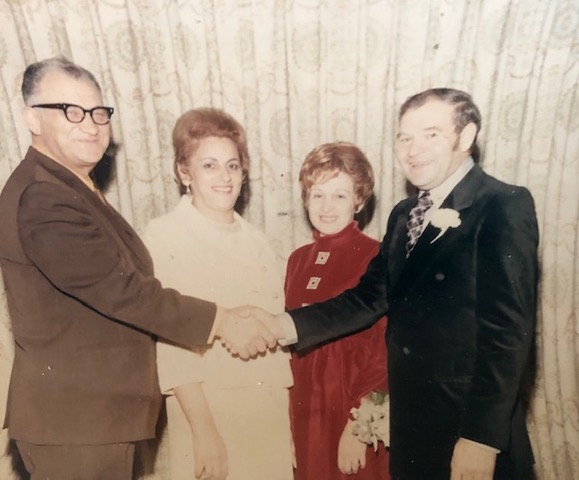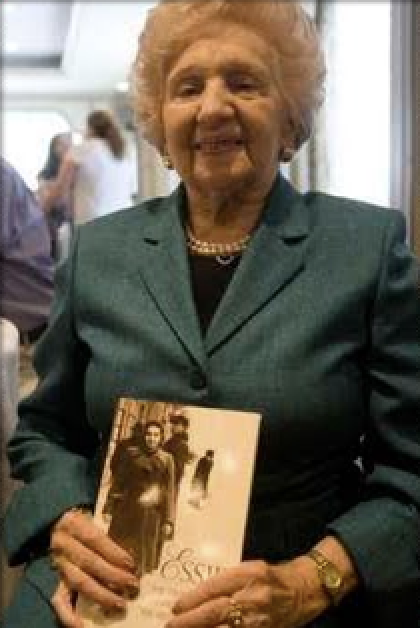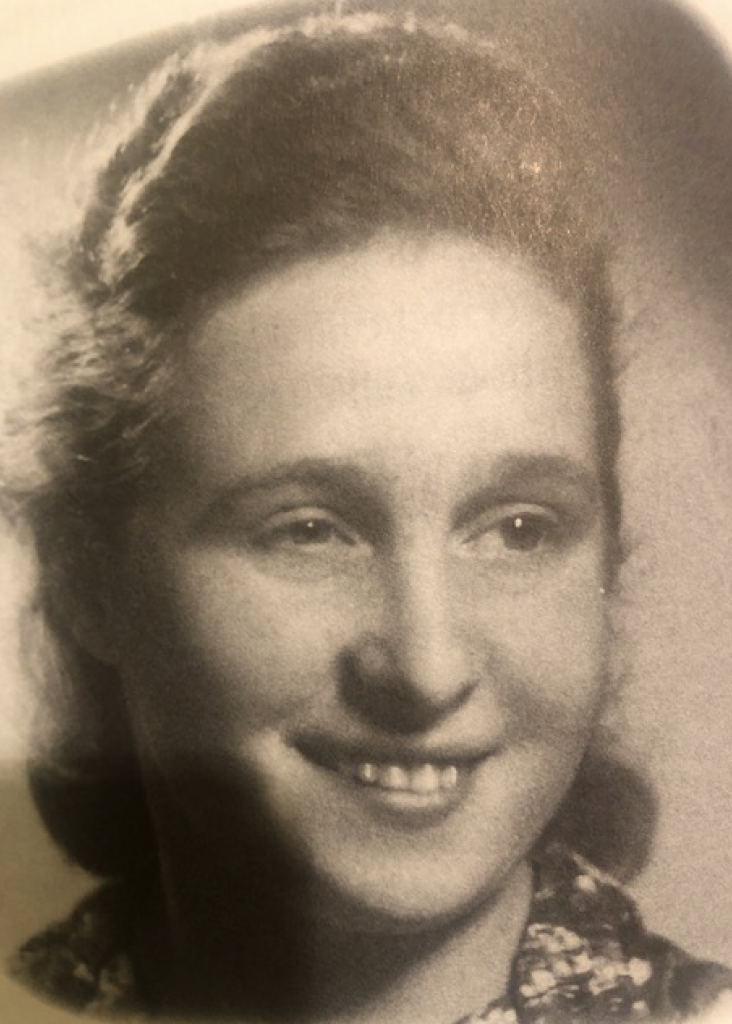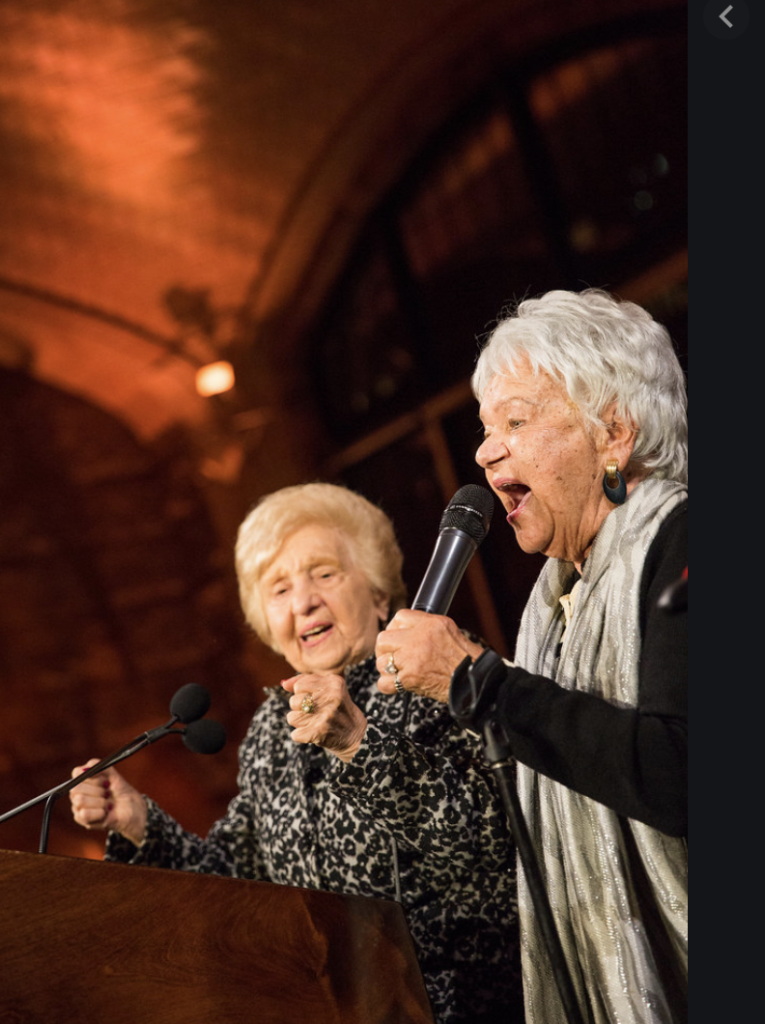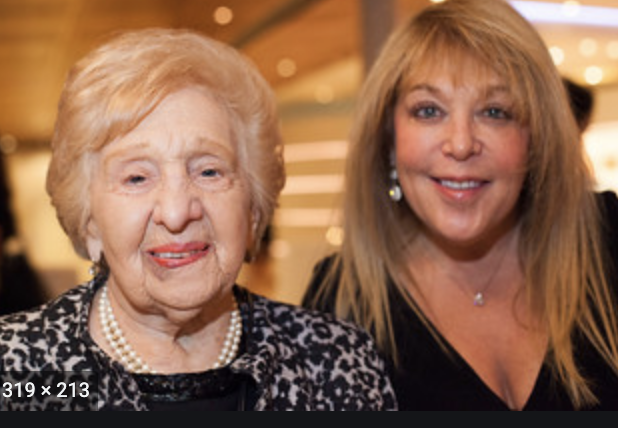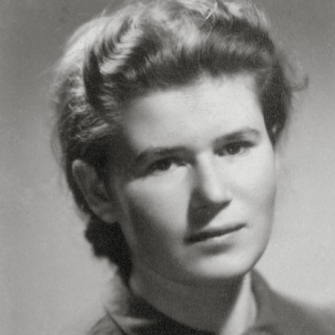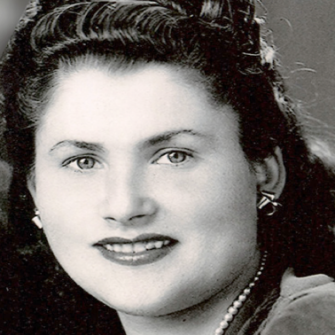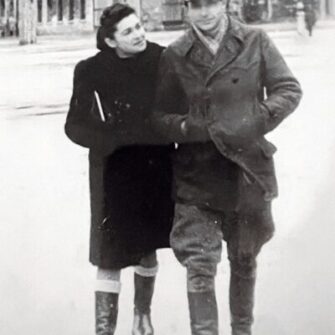Essie Shor, born Esia Levine, was taken on December 3rd, 1925, in the Polish town of Novogrudok (now northeast Belarus). She lived with her father, Sidney, a bookbinder; her mother, Kunia; her sisters Mariashke and Rivale; and Aron and Israel. When she was just 16, Nazis invaded Poland, and soon after, bombs began descending on her town. The war had officially reached them, and her life was drastically changed.
When the Nazis invaded Novogrudok, they forced Jewish families to give up their belongings, and Jewish children were no longer allowed to attend school. To keep a low profile and distance themselves from the activities in the city center, Essie’s family left to stay on the outskirts of town, first with her uncle Yoshke, then further out to the homestead of her Bielski cousins.
One day, on a trip back into town to gather their belongings from home, Essie saw that prominent Jewish community figures- teachers, intellectuals, professionals – had been rounded up and murdered. Soon after, the Nazis dictated that Jews were not permitted to leave town, and her brothers decided to return to the Bielski’s homestead while the rest of the family planned to follow afterward. When Essie and the rest of her family attempted to leave town, police blockades turned them back, and they were called to the town courthouse along with the rest of Novogrudok’s Jews. Everyone was scared and knew that potential death awaited them. Essie recognized one of the Nazi officers who marched into the courtyard as one of her father’s clients and suddenly ran up to him and pleaded for their lives. She told him that her father, the only bookbinder in town, would be needed and should be spared. She and her father were ordered back inside the courthouse, leaving the rest of her family behind. She later found out that the Nazis had killed 4,000 people that day, and after a moment of relief that her life had been spared, she felt intense grief at the loss of her family.
Her father and the others who survived were herded into a ghetto and put to work. Soon, Essie was assigned a housekeeping job with a Polish family. She was treated well and enjoyed working for the Foltanskis until a new law forbade Jews to work for anyone but Germans. Essie recalled life in the ghetto and outside of town as always full of fear. New laws were passed daily restricting their freedoms, and defying the rules could mean death. Neighbors and friends she once knew now ignored her in the street.
One day, her former employer, Mrs. Foltanski, boldly visited Essie in the ghetto and told her about a group of partisan fighters – former Russian POWs who escaped the Nazis and hid in the woods. Then she learned that there were also Jewish partisans. She knew her Bielski cousins had escaped into the woods, but did not yet realize that they had started the most significant all-Jewish brigade of partisan fighters. Her father’s friend, Gutel, agreed to lead her to the partisans, but her father did not want to join, fearing for his well-being and survival out in the woods. However, when she escaped and reached the forest, she was immediately soothed by the sound of singing coming from the partisans. She once again had hope.
Essie was reunited with her cousins Tuvia, Asael, Zus, and Aron Bielski. They were the leaders of the brigade and well respected by everyone. Living with the partisans gave her a new sense of freedom, but she recalled going from feeling caged to feeling hunted. After some time with them, she knew she had to convince her father to join, and after she wrote to him, he did so.
Essie knew she needed a gun for survival and convinced Tuvia to get her a rifle. She was one of the only females in the group with one. She learned to care for the gun and always kept it with her. She soon began standing guard duty at night to protect the brigade. Although she helped with cooking and caring for the brigade, she also went on missions to obtain food, supplies, and strategic information, giving her a new sense of self-esteem and belonging.
Once, on a mission, she encountered Russian partisans who claimed that the Bielski partisans acted in their self-interests and did not focus on advancing the war’s end. Faced with the pressure of defending her brigade’s honor and proving herself as a female fighter, she agreed to join them on a mission to blow up a railway bridge to thwart German transportation. She ended up staying behind to care for one of their drunken members. The next day, they left her behind in the village. Because her original brigade had already returned to the forest, the only way for her to get back safely was to threaten a Polish farmer to take her across the river and back to her brigade. She felt pride at standing up for herself and her partisan brigade.
As the war’s end neared, Essie and another female fighter in her brigade, Itka, went on a mission to face Nazi soldiers head-on, even though her father protested. She survived, and soon the war ended. She later went back into town and thanked those who had helped her.
Following the war, Essie met and married Jerry Shor after a one-month courtship. Eventually, she and her husband moved with their two-year-old daughter to New York, where they had a second daughter. Essie worked for a significant book manufacturer and eventually returned to school to get her college degree and became a public school teacher, retiring at age 80. She lived in the Bronx, New York, for many years, moving to Pennsylvania to be near her family. Essie and Jerry had two daughters, three grandchildren, and one great-granddaughter. Unfortunately, Essie passed away in December 2022.
Essie shared her story in her memoir, Essie: The True Story of a Teenage Bielski Partisan.https://www.amazon.com/Essie-Teenage-Fighter-Bielski-Partisans/dp/0982184441

